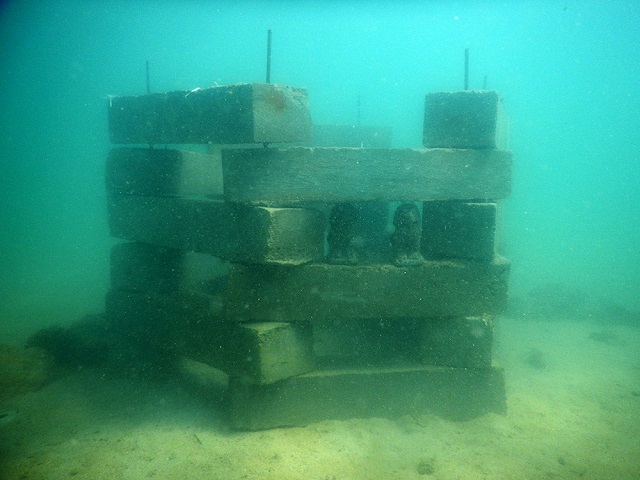National Geographic Awards Innovators Combating Illegal Fishing
The National Geographic Society has announced the winners of its Marine Protection Prize - as part of celebrations for World Ocean Day on June 8.
The purpose of the Prize is to attract a range of solutions that offer low-cost and easy-to-maintain technologies and that are relevant to the needs of local stakeholders. Three winners were chosen from a pool of 156 teams, and each will be awarded $150,000 to implement their plans:
Paul Ferber of Marine Conservation Cambodia
Marine Conservation Cambodia, led by Paul Ferber, created a project which counters destructive and illegal fishing practices in Kep province, Cambodia, by deploying anti-trawling structures and delimiting boundaries of a marine fisheries management area. They developed a simple, interlocking design and high strength construction techniques that can deliver effective, robust and affordable devices on an industrial scale or at the village level.
A full structure is made of 21 concrete blocks (each 1.25-meter long and weighing 150-kilograms), built separately and assembled underwater. The structures can be built to different heights at various depths, thus avoiding impacts on regular and legal navigation, while enabling restoration of small-scale fisheries. They are designed to be easily movable without heavy machines and aim to provide a strong deterrent to illegal trawling as bottom-dragged nets get caught on them. They also act as an artificial reef. Each structure will be seeded with 1,000 locally grown oyster spats. This enhances water filtration and creates a wild bivalve aquaculture commerce, providing new economic opportunities for communities.
“Conservation doesn’t have to be complicated or expensive; often the simplest solutions offer the most effective outcomes,” said Ferber. “Giving nature a break from anthropogenic stresses is all that is needed to allow nature to do what it does best, self-restoration. As a species, we need to reassess our priorities and remove ourselves from the consumer lifestyles we have adopted and return to a more balanced approach where we give nature the respect it so desperately needs.”

Badr Idrissi of ATLAN Space
Based in Morocco, Badr Idrissi of ATLAN Space created the FishGuard pilot, which aims to identify and reduce illegal fisheries in the Republic of Seychelles. FishGuard, a partnership between ATLAN Space, Grid-Arendal and Trygg Mat Tracking, strengthens fisheries enforcement by monitoring large marine areas using fully autonomous drones, guided by artificial intelligence and supported by expert analysis, to identify and tackle illegal, unreported, unregulated (IUU) fishing operations.
FishGuard’s technical approach includes three steps: Detection, Identification and Intervention. For Detection of IUU Fishing vessels over large marine areas and beyond horizon, it uses short-range (40-100 kilometer) and long-range (250-700 kilometer) commercial drones, which can take-off from land or boats and are equipped with ATLAN Space artificial intelligence. The drones determine optimal flight paths autonomously, using all available data from Earth Observation, AIS and local fishers’ reports. The artificial intelligence allows the drones to understand what they are seeing using cognitive vision algorithms to detect suspect vessels.
Melissa Garren of Pelagic Data Systems
Melissa Garren and her team at Pelagic Data Systems will work to alleviate all three aspects of IUU fishing in the Kui Buri district (Prachuap Khiri Khan Province), Thailand. They will use solar-powered vessel tracking technology and innovative analytics to support a fisher-driven initiative, in collaboration with local authorities, to implement sustainable fisheries management and combat IUU fishing.


that matters most
Get the latest maritime news delivered to your inbox daily.
Image Credit: Gabon Agence Nationale des Parcs Nationaux Ryan Jenkinson
Images Credit: National Geographic Society Marine Protection Prize

